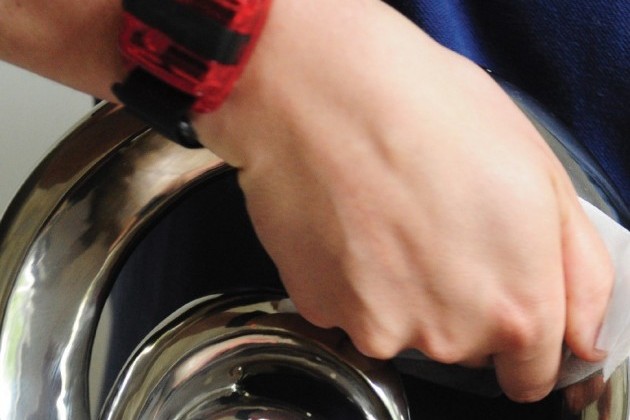The first scientific evidence of a link between anxiety and repetitious behavior has been demonstrated by researchers at the University of Connecticut and reported in the journal Current Biology.
The study, “Effects of Anxiety on Spontaneous Ritualized Behavior,” found stress can result in action that could help as a coping strategy to reduce anxiety, a determination that may lead to a better understanding of psychiatric disorders such as obsessive compulsive disorder (OCD) and autism spectrum disorders.
Advances in motion sensing technology offered researchers a new way to test for a link between ritual and anxiety. Although the link has been theorized for many years in social science research, the study is the first hard evidence of a relationship between the two, according to Martin Lang, a doctoral candidate in anthropology at UConn who led the study.
“The theory behind all of this is that when people face some uncertain or uncontrollable situations, it stresses them because they can’t predict what will happen,” says Lang. “As humans, our goal is to be able to predict and adapt to what is going on. That’s why we think rituals might be a way to get control over your environment.”
For the study, 62 male and female undergraduate students were randomly assigned to either a high-anxiety or low-anxiety group and asked to perform a series of tasks.
To induce high anxiety, the students were asked to prepare a speech about a decorative object, a metal sculpture, and later present it before a panel of experts. The low-anxiety group was asked to prepare a speech but did not have to present it. Both groups were asked to clean the sculpture at the conclusion of their assignment. All participants wore a heart rate monitor and a wrist accelerometer, which measured hand motions during the cleaning process.
Researchers determined that cleaning – such as washing hands or wiping a wine glass – would be an optimal activity to measure because it is often part of religious rituals as well as a pronounced activity demonstrated in conditions such as OCD, and is among the most widely observed rituals, says Lang.
The study found that the anxiety induced by having to give a speech resulted in those students spending more time cleaning the decorative object and using the same repeated hand movements than the time spent by those who did not give a speech.
“It’s the connection between classical theory and new technology,” Lang says.
The desire to regain to control over an environment is something experienced by those with OCD, says Lang. Usually those with OCD symptoms feel that they lose control over the situation and they need to do something to control it.
Dimitris Xygalatas, assistant professor of anthropology and Lang’s advisor, says the study has wide implications. For example, it might help develop effective techniques to help people deal with chronic and acute stress.
“This evidence allows us to move to new directions, within and beyond anthropological research,” Xygalatas says. “We now need to close the loop, that is, to examine whether performing ritualized actions indeed helps reduce anxiety.”
In addition to Xygalatas, Lang’s collaborators on the study include researchers at Masaryk University in the Czech Republic, where the initial testing with students occurred; Victoria University of Wellington in New Zealand; and Comenius University in Bratislava, Slovakia.




